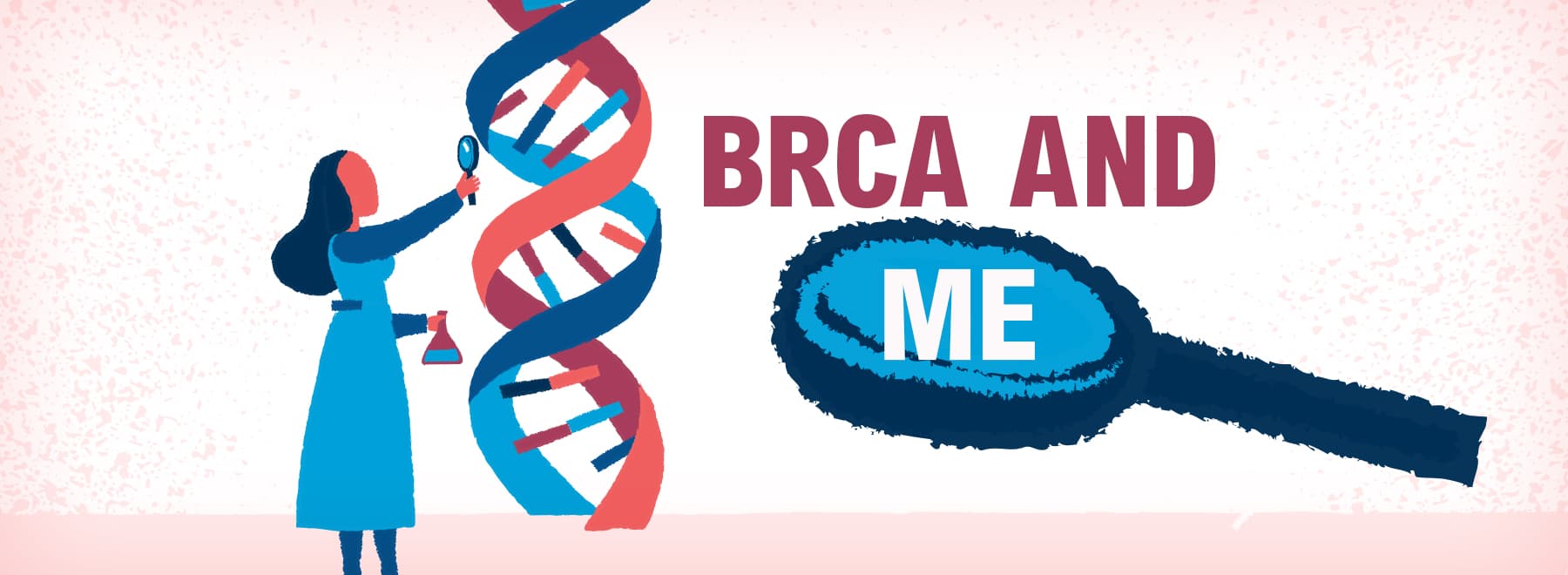UMMC experts: Genetic tests pose self-diagnosis risks
Home genetic testing is becoming more popular thanks to decreasing prices, easy use and multiple companies offering it in the marketplace.
Spit into a kit, mail it to a laboratory and wait a few weeks for the results. There are kits that can determine your ancestor’s homeland or your dog’s breed mix.
Now, some can even assess your health risks.
In March, the Food and Drug Administration approved the first direct-to-consumer genetic test for cancer risk. The test, made by the company 23andMe, looks for three variants of the genes BRCA1 and BRCA2.

Having one of these three mutations increases lifetime risk of breast cancer to about 80 percent. The mutations are associated with higher ovarian and prostate cancer risks, said Dr. Joseph Maher, professor of Medicine at the University of Mississippi Medical Center.
Maher, a cancer geneticist, said while the test can reliably detect the three variants, they are found predominantly in the Ashkenazi Jewish population, where the odds of a person having one of the three variants are about one in 40. The variant is much rarer in other ancestry groups.
“There are thousands of BRCA variants that increase cancer risk,” Maher said. “For most people, this test is just not going to be relevant because it’s only looking for these three mutations.”
In contrast, some families with a history of various cancers may have what Maher calls “private mutations” that are not widespread in a population.
Furthermore, “there are lots of variants which have an unknown significance,” Maher said, meaning geneticists don’t know how they affect cancer risk. “They are not obviously benign, but not obviously malignant either. In those cases, we will follow a patient long-term and reevaluate their risk.”
What should someone do who tests positive for one of the BRCA variants? Talk to the professionals.
“These tests aren’t approved for medical decision-making,” Maher said. “Report it to your physician, who can refer you to a medical geneticist or genetic counselor.”
Not only will this get the individual on track for proper diagnosis and treatment, but it can also benefit family members. Specialists can build a pedigree chart and start to perform cascade genetic testing on the person’s relatives to find who in the family is at risk and who is not.
“Another advantage is that we can determine who does not require burdensome testing or medical interventions,” Maher said.
BRCA is not 23andMe’s first foray into DIY risk assessment. The FDA previously approved tests for seven non-cancer-related genetic variants, including Alzheimer’s, Parkinson’s and celiac diseases. Like BRCA, these screen for one or two variants, which the company says are most relevant to people with European ancestry.

“These tests are designed to assay for a specific variant or sequence,” said Dr. James Wilson, UMMC professor of physiology and biophysics. “However, people who don’t have those particular variants may get a false sense of security.”
Wilson, a genetic epidemiologist, said the 23andMe lab is “capable” and uses “sophisticated” techniques. The company’s facility is CLIA-certified, meaning that processes, equipment and personnel meet federal standards for human specimens.
However, with the exception of FDA-approved tests, Wilson said most direct-to-consumer analyses fall into “the realm of hobby genetics.”
That includes popular ancestry tests. Wilson said these do well predicting origins at the continental level, but lose strength as they focus on more specific regions because the data aren’t as robust at that level.
23andMe also produces wellness reports, non-FDA-approved measures of a genome’s effect on weight, sleep, caffeine tolerance and more. But genetics can only determine so much of a person’s fate.
“Every gene occurs within an environment,” Wilson said. Lifestyle and external influences can counterbalance a genetic propensity, for better or worse.
Direct-to-consumer kits do have value, Wilson said. For one, they’re fun. Secondly, widespread use can also advance research efforts to help better understand diseases.
For example, “we mostly learned about BRCA through family studies,” Wilson said. “We haven’t really studied these genes in groups of people other than those with a known family history of breast cancer.
“These home tests are taking all comers who want to submit samples. If enough people opt in to have their DNA included in research studies and answer questions about their personal health, scientists may be able to validate more genetic variants related to certain conditions.”
To date, 94 peer-reviewed articles use 23andMe data to study topics as various as being a “morning person” to vulnerability to infectious disease.
As more is learned about our genes, the information creates not only opportunities for medical advances, but more potential uses for home test kits.
“I think people are becoming more savvy in regards to direct-to-consumer genetic testing,” Maher said, “but they need a source of expertise to make sure they use and understand these tests effectively.”


